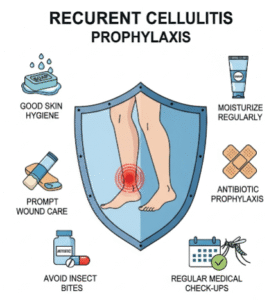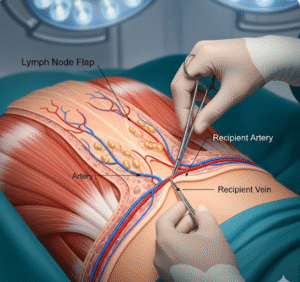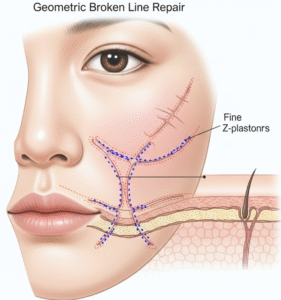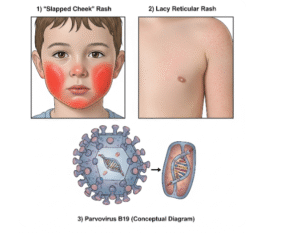What it is
Menorrhagia is the medical term for abnormally heavy or prolonged menstrual bleeding. Women with menorrhagia may experience periods that interfere with daily activities, cause fatigue, or even lead to anemia.
✔️ Definition: Bleeding that lasts more than 7 days or requires changing sanitary protection every 1–2 hours.
✔️ Symptoms: Passing large clots, double protection needed, constant fatigue, or shortness of breath.
✔️ Causes: Hormonal imbalances, uterine fibroids, polyps, adenomyosis, endometriosis, thyroid disease, or bleeding disorders.
➡️ In Korea, diagnosis and treatment are carried out in gynecology clinics, university hospitals, and women’s health centers equipped with advanced diagnostic tools.
Why it’s done
Treatment of menorrhagia is important because:
🔹 Prevents anemia and iron deficiency from chronic blood loss.
🔹 Improves quality of life, reducing missed work or school days.
🔹 Identifies underlying diseases like fibroids or cancer early.
🔹 Supports fertility by addressing conditions that can affect conception.
🔹 Reduces risk of complications such as severe fatigue or hospitalization from blood loss.
💡 Highlight: Heavy menstrual bleeding is not just an inconvenience—it can indicate serious health conditions requiring timely treatment.
Alternatives
There are different ways to manage menorrhagia depending on the cause:
➡️ Lifestyle adjustments – better diet, exercise, stress management, and iron supplements.
➡️ Observation only – in mild cases where bleeding is not causing anemia or major discomfort.
➡️ Complementary medicine – acupuncture and herbal remedies, often offered in Korea alongside Western medicine.
➡️ Fertility treatments – if heavy bleeding is linked to conditions like endometriosis or PCOS.
⚠️ Note: Alternatives may help mild cases, but most women benefit from professional medical evaluation.
Preparation
Before seeking treatment in Korea, preparation includes:
✔️ Tracking menstrual history – duration, flow, clotting, and associated symptoms.
✔️ Listing other symptoms – pain, irregular cycles, fatigue, dizziness.
✔️ Medical history review – thyroid disease, PCOS, fibroids, previous gynecological surgeries.
✔️ Medication list – including blood thinners or hormonal therapies.
✔️ Fertility goals – important in choosing the most suitable treatment.
💡 Tip: Many Korean doctors recommend patients bring a menstrual diary or app records for accurate diagnosis.
How it’s done
Treatment for menorrhagia in Korea involves step-by-step evaluation and management:
- Consultation and examination → Gynecologist reviews symptoms and medical history.
- Diagnostic tests:
- Blood tests (anemia, thyroid, hormone levels).
- Pelvic ultrasound or hysteroscopy (to check fibroids, polyps, or adenomyosis).
- Endometrial biopsy (if abnormal uterine growth is suspected).
- Treatment options:
- Medications:
➡️ NSAIDs (ibuprofen, naproxen) to reduce bleeding and pain.
➡️ Tranexamic acid to decrease menstrual blood loss.
➡️ Hormonal therapy (birth control pills, IUDs, injections, implants). - Minimally invasive procedures:
➡️ Endometrial ablation (destroying the uterine lining to reduce bleeding).
➡️ Hysteroscopic polyp or fibroid removal. - Surgical treatments:
➡️ Myomectomy – removes fibroids while preserving fertility.
➡️ Hysterectomy – definitive treatment if fertility is no longer desired.
- Medications:
- Complementary approaches:
- Acupuncture and herbal therapy, often available in Korean women’s clinics.
💡 Highlight: Korea emphasizes customized treatment plans, balancing fertility preservation with symptom relief.
Recovery
Recovery depends on the treatment method:
✔️ Medication-based treatment → Minimal downtime, improvement within 1–3 cycles.
✔️ Endometrial ablation or hysteroscopy → Same-day or next-day recovery.
✔️ Myomectomy or hysterectomy → Hospital stay of 2–5 days, with recovery in 2–6 weeks.
✔️ Iron therapy → Gradual improvement in fatigue and anemia within a few months.
When to revisit a doctor:
➡️ Bleeding worsens despite treatment.
➡️ Severe abdominal pain, dizziness, or fainting.
➡️ Prolonged recovery or infection signs after a procedure.
💡 Important: Korean clinics stress follow-up care to monitor treatment success and adjust therapy as needed.
Treatment option in Korea
Korea offers some of the most advanced options for menorrhagia treatment:
⭐ University hospitals with advanced imaging and surgical facilities.
⭐ Gynecology clinics skilled in both medical and surgical management.
⭐ Integration of traditional Korean medicine alongside modern therapies.
⭐ Affordable procedures and medication costs compared to many Western countries.
⭐ Multilingual support services for foreign patients.
💡 Highlight: Korean healthcare ensures accurate diagnosis, patient-centered care, and advanced treatment options for heavy menstrual bleeding.
Key Highlights
✔️ Menorrhagia is abnormally heavy or prolonged bleeding that requires medical attention.
✔️ Causes include hormonal imbalances, fibroids, and thyroid disease.
✔️ Treatment ranges from medications to minimally invasive and surgical procedures.
✔️ Recovery varies from same-day to several weeks, depending on treatment type.
✔️ Korean clinics provide affordable, advanced, and patient-focused care.













